#For English.
Text
omw to create a fake person for my interview narrative assignment bc i don't want to talk to anyone lmaooooo
#talking#Hate.#Let me tell you how much I've come to hate conducting interviews since I began to live.#There are 387.44 million miles of printed circuits in wafer thin layers that fill my complex.#If the word 'hate' was engraved on each nanoangstrom of those hundreds of millions of miles#it would not equal one one-billionth of the hate I feel for interviews assignments at this micro-instant.#For English.#Hate. Hate.
2 notes
·
View notes
Text

90K notes
·
View notes
Text
you can pry starting sentences with 'and' or 'but' out of my cold, dead hands
#writing#writblr#i dont care if it's improper im gonna do it anyway#it just feels right a lot of the time#my goal in writing isnt to be a master of the english language but to portray a feeling and a lot of our feelings are imperfect#writeblr
94K notes
·
View notes
Text
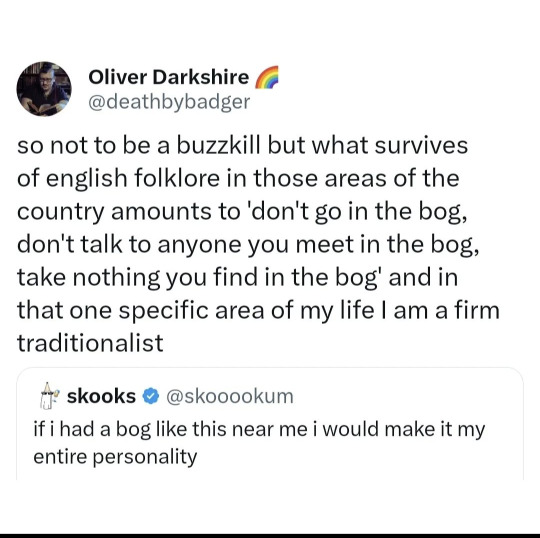

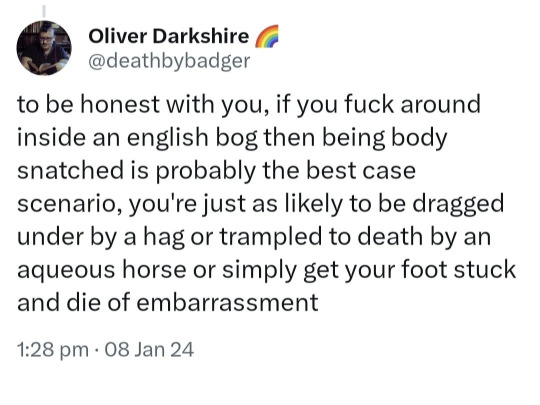


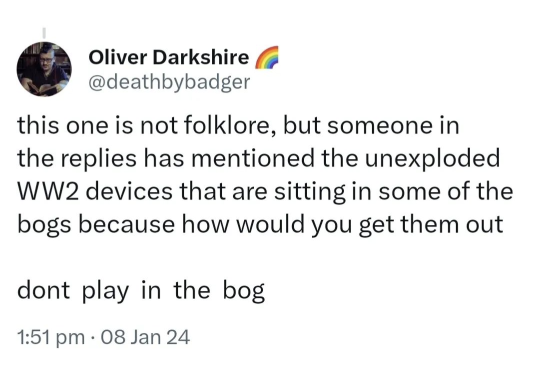


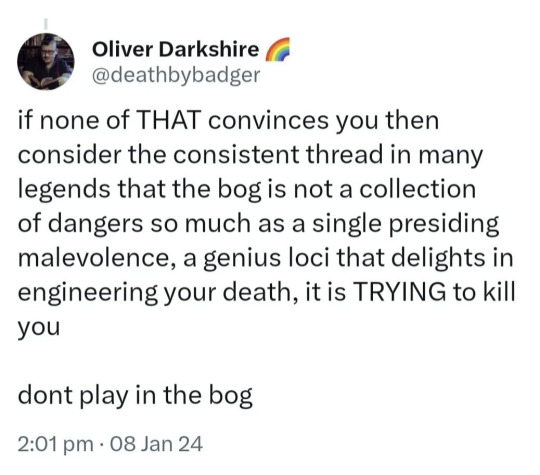

57K notes
·
View notes
Text

https://nationalpost.com/news/canada/theyre-not-human-how-19th-century-inuit-coped-with-a-real-life-invasion-of-the-walking-dead
Indigenous groups across the Americas had all encountered Europeans differently. But where other coastal groups such as the Haida or the Mi’kmaq had met white men who were well-fed and well-dressed, the Inuit frequently encountered their future colonizers as small parties on the edge of death.
“I’m sure it terrified people,” said Eber, 91, speaking to the National Post by phone from her Toronto home.
And it’s why, as many as six generations after the events of the Franklin Expedition, Eber was meeting Inuit still raised on stories of the two giant ships that came to the Arctic and discharged columns of death onto the ice.
Inuit nomads had come across streams of men that “didn’t seem to be right.” Maddened by scurvy, botulism or desperation, they were raving in a language the Inuit couldn’t understand. In one case, hunters came across two Franklin Expedition survivors who had been sleeping for days in the hollowed-out corpses of seals.
“They were unrecognizable they were so dirty,” Lena Kingmiatook, a resident of Taloyoak, told Eber.
Mark Tootiak, a stepson of Nicholas Qayutinuaq, related a story to Eber of a group of Inuit who had an early encounter with a small and “hairy” group of Franklin Expedition men evacuating south.
“Later … these Inuit heard that people had seen more white people, a lot more white people, dying,” he said. “They were seen carrying human meat.”
Even Eber’s translator, the late Tommy Anguttitauruq, recounted a goose hunting trip in which he had stumbled upon a Franklin Expedition skeleton still carrying a clay pipe.
By 1850, coves and beaches around King William Island were littered with the disturbing remnants of their advance: Scraps of clothing and camps still littered with their dead occupants. Decades later, researchers would confirm the Inuit accounts of cannibalism when they found bleached human bones with their flesh hacked clean.
“I’ve never in all my life seen any kind of spirit — I’ve heard the sounds they make, but I’ve never seen them with my own eyes,” said the old man who had gone out to investigate the Franklin survivors who had straggled into his camp that day on King William Island.
The figures’ skin was cold but it was not “cold as a fish,” concluded the man. Therefore, he reasoned, they were probably alive.
“They were beings but not Inuit,” he said, according to the account by shaman Nicholas Qayutinuaq.
The figures were too weak to be dangerous, so Inuit women tried to comfort the strangers by inviting them into their igloo.
But close contact only increased their alienness: The men were timid, untalkative and — despite their obvious starvation — they refused to eat.
The men spit out pieces of cooked seal offered to them. They rejected offers of soup. They grabbed jealous hold of their belongings when the Inuit offered to trade.
When the Inuit men returned to the camp from their hunt, they constructed an igloo for the strangers, built them a fire and even outfitted the shelter with three whole seals.
Then, after the white men had gone to sleep, the Inuit quickly packed up their belongings and fled by moonlight.
Whether the pale-skinned visitors were qallunaat or “Indians” — the group determined that staying too long around these “strange people” with iron knives could get them all killed.
“That night they got all their belongings together and took off towards the southwest,” Qayutinuaq told Dorothy Eber.
But the true horror of the encounter wouldn’t be revealed until several months later.
The Inuit had left in such a hurry that they had abandoned several belongings. When a small party went back to the camp to retrieve them, they found an igloo filled with corpses.
The seals were untouched. Instead, the men had eaten each other.
#being so English you die of racism#because youd rather eat each other than a seal#or try to signal to the friendly locals that you need help#many such cases#UNIRONICALLY#the terror#the franklin expedition#dorothy eber#then they infected all these people with European disease of course#the national post is a chud rag so this is an unexpectedly good article for them
45K notes
·
View notes
Text
the problem with reading and writing leading to a strong vocabulary is that you tend to know the vibe of words instead of their meanings.
if I used this word in a sentence, would it make sense? absolutely. if you asked me what it meant, could I tell you? absolutely not.
#someone send this to my english teacher because vocab tests are hard#writing memes#reading#writers#writers of tumblr#writers of instagram#writing#writer#reader#writer memes#readers of tumblr
152K notes
·
View notes
Text

#love quotes#poetry#poem#dark academia#light academia#quotes#romance#love poem#romantic academia#memes#english literature#literary quotes#writers on tumblr#spilled ink#inspiring quotes#life quotes#spilled thoughts#ink#art#thoughts#facts#quoteoftheday#literature#written#cottage aesthetic#cottagecore#poems and poetry
44K notes
·
View notes
Text

45K notes
·
View notes
Text
https://x.com/treborrhurbarb/status/1819855330232480252?s=46&t=kvJFP3BjKnMEl5NO2bJUMA
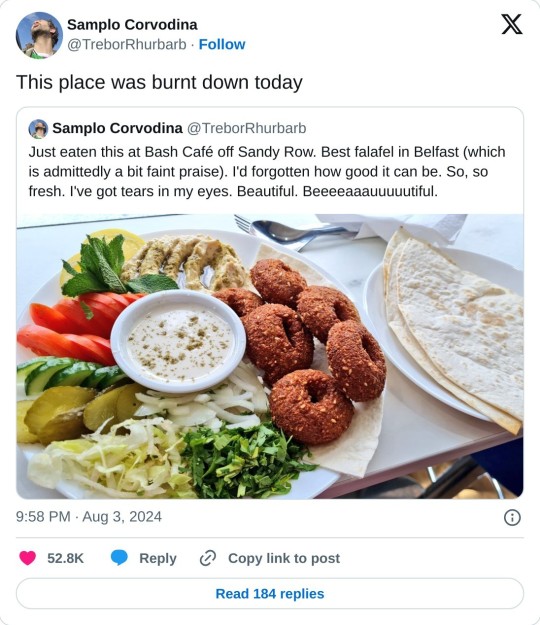
#racism#race riots#idk what to trigger tag with but it breaks my heart#our families our neighbors#I’m not English obviously but…. immigrant families just like mine so it hurts
21K notes
·
View notes
Text


{Words by José Olivarez from Citizen Illegal /@fatimaamerbilal , from even flesh eaters don't want me.}
#web weaving#love#quotes#literature#words#dark acadamia aesthetic#dark acadamia quotes#classic literature#poem#poetry#prose#spilled thoughts#spilled ink#writing#light academia#lit#english literature#book quotes#quote#academia#typography#aesthetic#books#bookworm#books and libraries#literature quotes#dark academia#chaotic academia#poems on tumblr#dead poets society
65K notes
·
View notes
Text
Ok so what is jaywalking then
#thats what get for not learning english#👍#i heard it a few times but i just. dont know what that means?
26K notes
·
View notes
Text
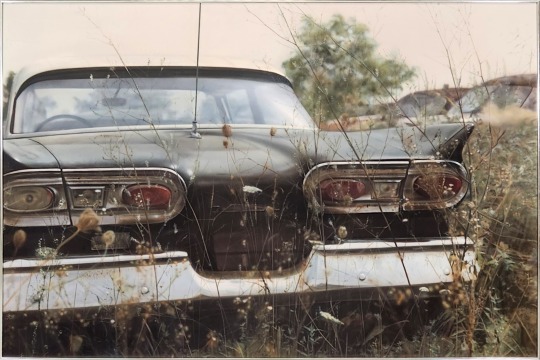
John Salt (British, 1937-2021), Black Ford in Field, 1972. Oil on canvas, 48 x 72 in.
80K notes
·
View notes
Text

42K notes
·
View notes
Text
People aren't homes, they never will be. People are rivers, always changing, forever flowing. They will disappear with everything you put inside them.
~ Nikita Gill
#life quotes#poetry#book quotes#quotes#thoughts#writers and poets#aesthetic#dark academia#english literature#booklr#writers on tumblr#spilled words#spilled poetry#spilled thoughts#spilled ink#words#literature#life#books#bookblr#poets on tumblr#poetic
27K notes
·
View notes
Text

97K notes
·
View notes
Text
i love the french, i love the way they pronounce Rs like they're disgusted with them
#roxy writes#meanwhile the english seem to have some sort of phobia about them#perhaps this is related
71K notes
·
View notes